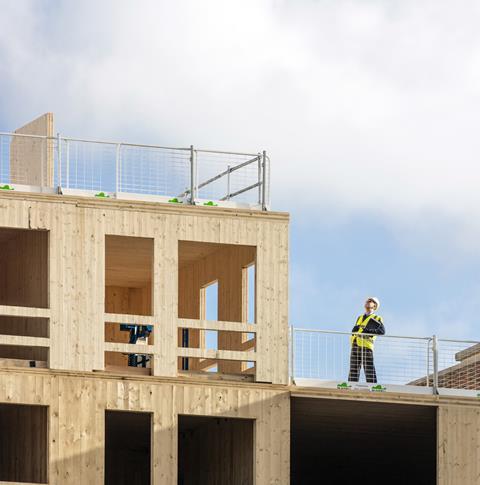Anthony Thistleton says UK ‘would go from world leader to backwater’ with collapse of CLT

An architect specialising in cross-laminated timber (CLT) buildings has warned that the government’s proposed ban on combustible cladding materials could spell the end of the construction method.
Anthony Thistleton, director of Waugh Thistleton, designer of the world’s largest CLT building, said that the proposals would stop CLT being used for the structure of residential buildings over six storeys.

He said: “It could potentially mean a complete collapse of CLT in this country – we would go from a world leader to a backwater.”
Thistleton said buildings over five storeys high were the “sweet spot” for CLT construction as it was cheaper to use other structural solutions on lower-rise buildings.
The consultation proposes that only non-combustible materials can be used in the “complete wall assembly, including the inner leaf, insulation and the facade” on residential buildings over 18m high.
The ban would also mean that foamed plastic insulation would be banned from the walls of buildings over 18m high.
Thistleton said the rapid growth of CLT construction in the UK meant his practice had become a world leader in this form of construction.
It was behind London’s first housing scheme to be made from prefabricated solid timber. Nine-storey Murray Grove in Hackney, east London, completed in 2009.
Waugh Thistleton was also the architect for the world’s largest CLT building, Dalston Works, a 33m-high apartment block in the same borough, which was completed last year.
The height of buildings constructed from CLT has been steadily increasing, particularly in Hackney. The borough introduced a “timber first” planning policy in 2012 to promote the use of the material.
According to Thistleton, the use of CLT was rapidly growing because of its speed of construction, low embodied carbon content and light weight, which reduced the amount of concrete required for a building’s foundations.
The government’s consultation closes on August 14.














No comments yet